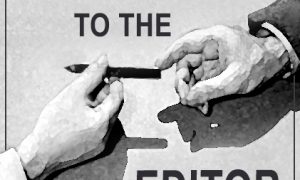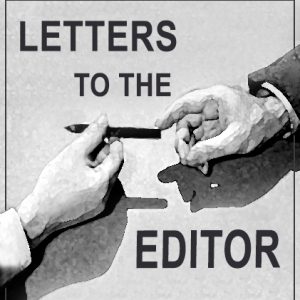To the Editor,
On Wednesday, May 29, 2019 Special Counsel Robert Mueller gave a 10-minute statement since taking over the Russia investigation. Mueller’s remarks echoed the findings spelled out in his exhaustive, more than 448-page long report into Russian interference in the 2016 election and possible obstruction of justice by President Trump. Clarifying statements made by William P. Barr, Attorney General mischaracterizing the findings on that point in Mueller’s report.
Mueller reiterated that Russia had engaged in “multiple, systematic efforts” to damage Hillary Clinton’s presidential campaign, but “there was insufficient evidence to charge a broader conspiracy” between the Russia government and any individuals associated with the Trump campaign. He said the “central allegation” against the Russians “deserves the attention of every American.” On the issue of obstruction, the Mueller report, “found multiple acts by the President that were capable of exerting undue influence over law enforcement investigations, including the Russian-interference and obstruction investigations.”
Madeleine Carlisle wrote in the Atlantic; “The social media campaign and the GRU hacking operations coincided with a series of contacts between Trump Campaign officials and individuals with ties to the Russian government. The Office investigated whether those contacts reflected or resulted in the Campaign conspiring or coordinating with Russia in its election-interference activities. Although the investigation established that the Russian government perceived it would benefit from a Trump presidency and worked to secure that outcome, and that the Campaign expected it would benefit electorally from information stolen and released through Russian efforts, the investigation did not establish that members of the Trump Campaign conspired or coordinated with the Russian government in its election interference activities.”
Julian E. Barnes New York Times reports; “The Russian government is likely to try to influence the 2020 presidential election. The United States has become adept at quickly identifying the perpetrators of so-called hacking and dumping operations that result in the release of potentially damaging material, increasing the risk for Moscow that Washington will respond,” said Representative Adam B. Schiff, the California Democrat who leads the committee. During the 2016 presidential campaign, emails and documents were stolen by Russian hackers from the Democratic National Committee and the Clinton campaign and then released publicly, influencing the presidential race. “The Russians may feel if they are too overt about it, the risk of blowback is simply too great,” Mr. Schiff said at the Council on Foreign Relations. “But there are other ways to have potentially even bigger impact than hacking and dumping.”
For most of the Cybersecurity community, the Russian GRU government’s ties to the 2016 electoral hacks are no longer up for debate. Security firms VMware, Crowdstrike, Mandiant and Fidelis all analyzed evidence of the DNC hack and agreed it was the work of two Russian intelligence agency hacking teams, using some of the same tools and techniques as earlier breaches by those groups. Securing election systems by implementing a security strategy to protect cross-jurisdictional elections is a critical initiative for state and local election officials. Given the decentralized nature of election responsibility, split between state-wide voter management and local election administration, traditional security approaches do not address a comprehensive security strategy to protect citizen data.
Russia has denied involvement in the hacks but the governments of the Netherlands, the UK, and the US painted a painstakingly-evidenced picture of the GRU’s cyberwarfare and disinformation campaigns. Over the past two years, Russian hackers have also been accused of attacking NATO, the Organization for Security and Cooperation in Europe (OSCE), the Organization for the Prohibition of Chemical Weapons (OPCW), the International Olympic Committee, the World Anti-Doping Agency, various ministries in Denmark, Italy, and Germany, the Joint Investigation Team tasked with investigating the downing of flight MH17 over Ukraine, and various other institutions in the Czech Republic, Poland, Germany, Lithuania, Latvia, Estonia, Ukraine, Norway.
Mueller’s report is just a sound bite how Russian trolls used social media to try to influence the outcome of the election in which Donald Trump was made president and outlines the way in which hackers stole documents from the DNC campaign. Hopefully cyberwarfare will be able to react to confirmed hacking information and not influence future elections Russian desires.
Norman Halls




